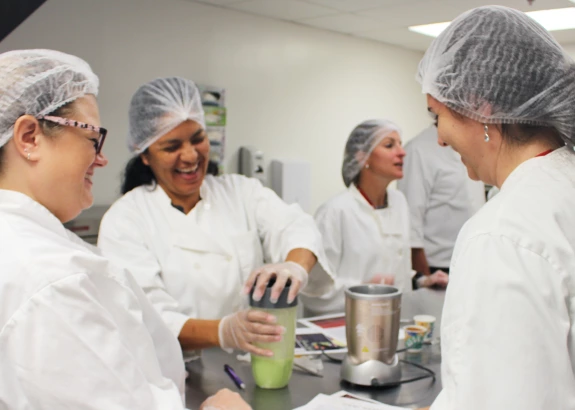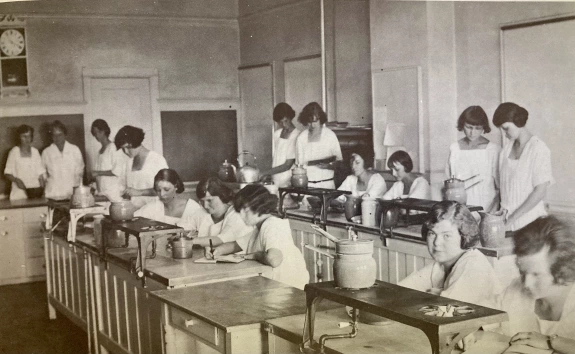
About
Founded in agriculture, rooted in life.
We believe that there is no one-size-fits-all solution to health and wellbeing. We combine cutting-edge precision nutrition and wellness approaches with culturally sensitive and weight-inclusive care practices to help individuals and communities pursue the lives they want to lead.
A healthy, varied diet and regular physical activity are essential to human health, and they're at the center of our work in the School of Nutritional Sciences and Wellness. Our undergraduate, graduate and research programs reflect a multidisciplinary approach to the discovery and translation of the roles of nutrition and exercise in optimizing health and wellness for people in Arizona and beyond.
There is a pressing need for health and wellness professionals with robust, well-rounded nutrition training, and we take pride in answering that call. In addition to our undergraduate and graduate programs in dietetics, we offer students the opportunity to pursue studies in the areas of precision nutrition, human performance and weight-inclusive care. We also offer coursework in food science, food safety and product development, with opportunities for hands-on experience with local food producers and processors. In the classroom, the lab and the community, our students receive the knowledge and skills they need to launch their careers and help people live healthy, fulfilling lives.
Our researchers are engaged in nutrition and wellness science that crosses disciplines in pursuit of foundational knowledge and translatable solutions. Touching on areas ranging from areas ranging from genetics and molecular biology to immunology, to diet-related disease, to optimizing performance across the lifespan, we seek to unlock the complex connections between food, physical activity and human health.

Our history
Our work in human nutrition and wellbeing goes back over a century, to 1899, when the domestic sciences program began offering instruction in nutrition and the chemistry of cooking. Feeding and caring for a family was seen as part of the essential “women’s work” of running a household, so nutrition, food science and food economics were taught alongside courses in sewing and managing a household budget.
Helping ensure that Arizonans got enough to eat was the chief priority of our nutrition programs during the first half of the twentieth century. In response to two world wars and the ravages of the Great Depression, nutrition students learned to plant kitchen gardens, incorporate food substitutes into recipes to accommodate shortages and prevent food waste through home preservation. These years also established us as a national leader in the area of food science. Beginning in World War I, our Food Testing Laboratory ensured the safety of shelf stable ingredients from across the country, and in the 1930s - 1950s, the pioneering work of Margaret L. Cammack Smith established safe threshold for fluorine in drinking water that became standard nationwide.
Over time, our work expanded to include large-scale food service, therapeutic nutrition, pediatric nutrition and metabolism and community nutrition. Because of the profound effects of diet on overall health, we also developed interdisciplinary programs with faculty in medicine, pharmacy, microbiology and exercise science. Our Cooperative Extension efforts included programs like the Expanded Food and Nutrition Education Program (EFNEP), which brought science-based nutrition education to underserved populations around the state, including those in rural and tribal areas.
Today, our pursuit of human health and wellbeing goes far beyond food. We’re working to uncover the complex interrelationships between diet, physical activity, genetics, environment and culture and their effects on physical and mental health. We understand that one-size-fits-all approaches do not work, and we’re leading the charge toward precision nutrition and wellness. We work across disciplines and across borders to improve longevity and quality of life for people in Arizona and around the globe.
